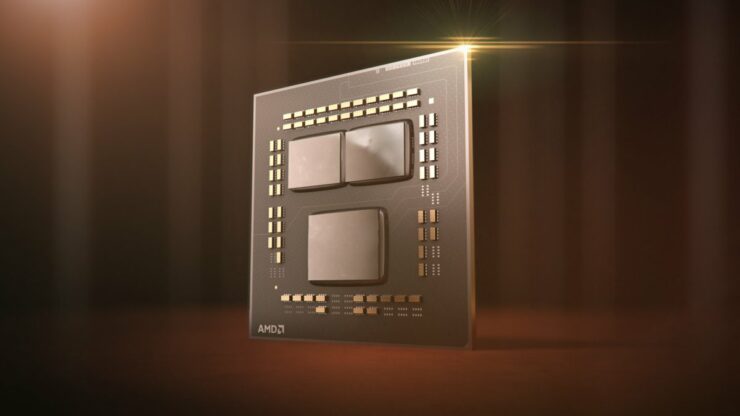
The latest benchmarks of AMD’s Ryzen 5000 Series Desktop CPUs have appeared in SiSoftware database which includes the Zen 3 based Ryzen 9 5950X, Ryzen 9 5900X, and Ryzen 7 5800X. All three CPUs were tested in the benchmark and show vast improvement over their predecessors based on the Zen 2 core architecture.
AMD Ryzen 9 5950X, Ryzen 9 5900X, Ryzen 7 5800X Zen 3 Desktop CPUs Benchmarked – Much Faster Than Their Zen 2 Ryzen 3000 Predecessors
Just yesterday, we were talking about how the AMD Ryzen 5000 Desktop CPUs had appeared on online retailers including Amazon from Preorders. Now the same chips have been benchmarked within the SiSoftware database, giving us a better look at the general performance improvements that they carry over their Zen 2 based Ryzen 3000 predecessors. The benchmarks were spotted by TUM_APISAK.
It looks like all three CPUs were tested by the same source since they were tested on an MSI MEG X570 Unify motherboard. There are two tests in which the performance was measured between the Ryzen 5000 and Ryzen 3000 desktop CPUs. These include the Processor Arithmetic (GOPS) and Processor Multi-Media (Mpix/s) tests. The benchmarks were compiled into charts by Harukaze5719 which gives us a much better comparison between the Ryzen 5000 CPUs & each of its Ryzen 3000 predecessors.
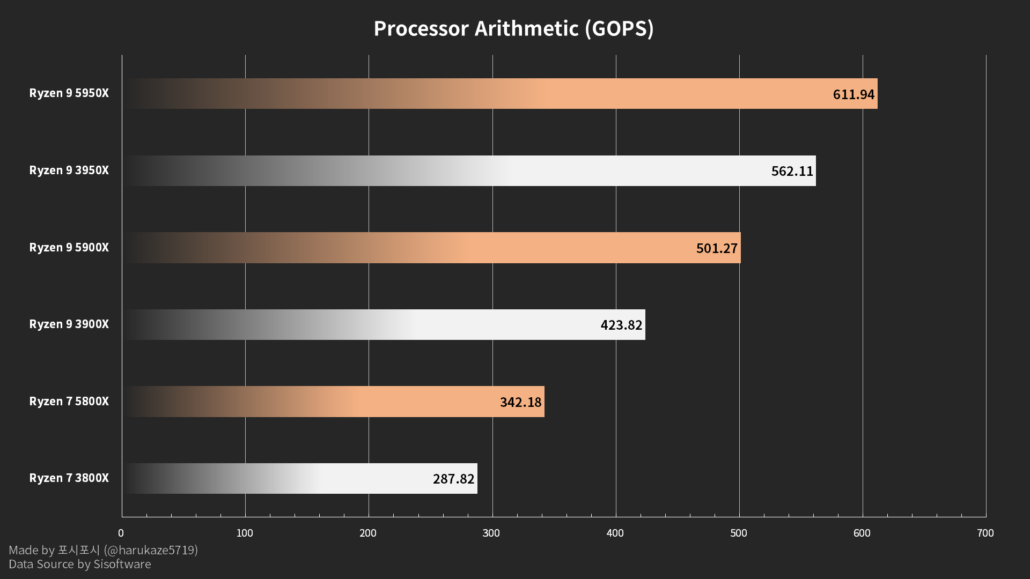
For the processor arithmetic tests, the Ryzen 9 5950X is around 9% faster than the Ryzen 9 3950X, the Ryzen 9 5900X is around 18% faster than the Ryzen 9 3900X while the Ryzen 7 5800X is around 20% faster than the Ryzen 7 3800X. The 10-20% average improvement in arithmetic tests shows the stronger IPC lead for Ryzen 5000 CPUs over the last-gen Ryzen 3000 lineup.
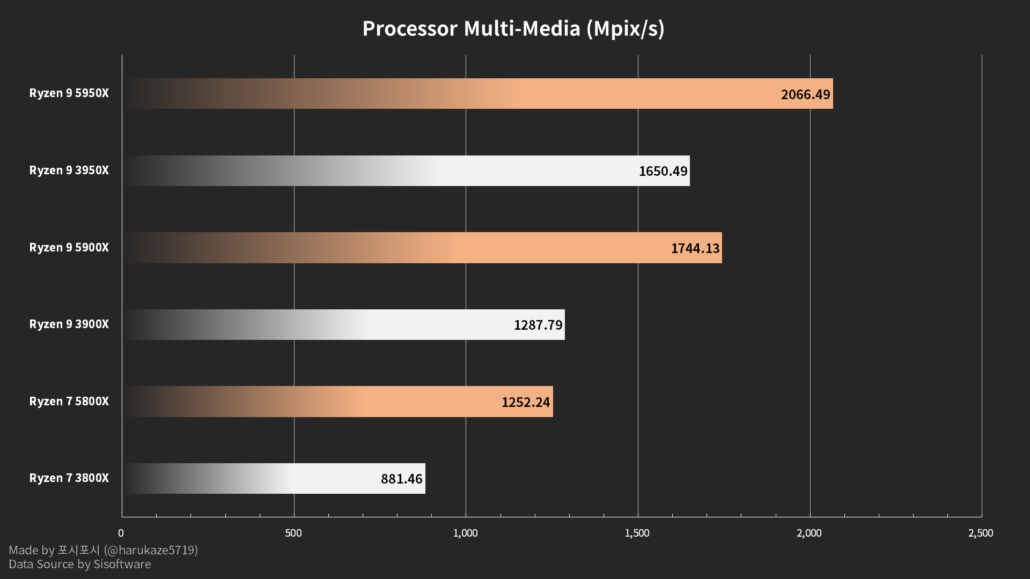
Moving over to the processor multi-media (Mpix/s) tests, here we see a vast improvement in CPU performance. The Ryzen 9 5950X is 25% faster than the Ryzen 9 3950X, the Ryzen 9 5900X is up to 35% faster than the Ryzen 9 3900X and even outpaces the Ryzen 9 3950X. The AMD Ryzen 7 5800X is a massive 42% ahead of its predecessor, the Ryzen 7 3800X, and even comes close to the 12 core Ryzen 9 3900X.
AMD Ryzen 5000 Zen 3 CPU SiSoftware Benchmarks:
| CPU Name | Arithmetic (GOPS) | Multi-Media (Mpix/s) | Improvement over predecessor (GOPs) | Improvement over predecessor (Mpix/s) |
|---|---|---|---|---|
| AMD Ryzen 9 5950X | 611.94 | 2066.49 | 9% (Ryzen 9 3950X) | 25% (Ryzen 9 3950X) |
| AMD Ryzen 9 5900X | 501.27 | 1744.13 | 18% (Ryzen 9 3900X) | 35% (Ryzen 9 3900X) |
| AMD Ryzen 7 5800X | 342.18 | 1252.24 | 20% (Ryzen 7 3800X) | 42% (Ryzen 7 3800X) |
AMD Ryzen 9 5950X, Ryzen 9 5900X, Ryzen 7 5800X SiSoftware Database Benchmarks:
AMD Ryzen 9 5950X “Zen 3” Desktop CPU – 16 Cores / 32 Threads Up To 4.9 GHz For $799 US
Starting off with the top of the line parts, AMD is announcing the Ryzen 9 series which is made up of the Ryzen 9 5950X. The Ryzen 9 5950X is the flagship 16 core part which is aimed at users demanding heavy multi-threading performance on AM4 sockets.
The chip has a total cache of 72 MB and a TDP of 105W. The chip features a boost clock of up to 4.9 GHz boost which when put together is just stunning for a 16 core part. The AMD Ryzen 9 5950X is going to cost $799 US and will be available on the 5th of November like the rest of the lineup.
AMD Ryzen 9 5900X “Zen 3” Desktop CPU – 12 Cores / 24 Threads Up To 4.8 GHz For $549 US
Next up, we have the Ryzen 9 5900X which is a 12 core part that is aimed at users demanding heavy multi-threading performance on AM4 sockets. The chip has a total cache of 70 MB and a TDP of 105W. The chip features a base clock of 3.7 GHz and a boost clock of up to 4.8 GHz boost which is faster than the Ryzen 9 3900XT. The AMD Ryzen 9 5900X will feature a retail price of $549 US which is $50 US higher than the MSRP of the Ryzen 9 3900XT while delivering significantly faster performance.
In performance comparisons, the AMD Ryzen 9 5900X completely obliterates the Intel Core i9-10900K, delivering insane amounts of up to 15% single-threaded performance jump over the competing chip within Cinebench R20. The same goes for gaming performance where the AMD Ryzen 9 5900X delivers up to 21% performance gains over the Core i9-10900K.
AMD Ryzen 7 5800X “Zen 3” Desktop CPU – 8 Cores / 16 Threads Up To 4.7 GHz For $449 US
The AMD Ryzen 7 5800X is an 8 core and 16 thread CPU. This chip is marketed to be the best 8 core processor in the market for gamers with its impressive clock speeds of 3.8 GHz base and 4.7 GHz boost clocks. The chip features a total of 36 MB of cache and a TDP of 105W. The CPU is expected to be priced at $449.
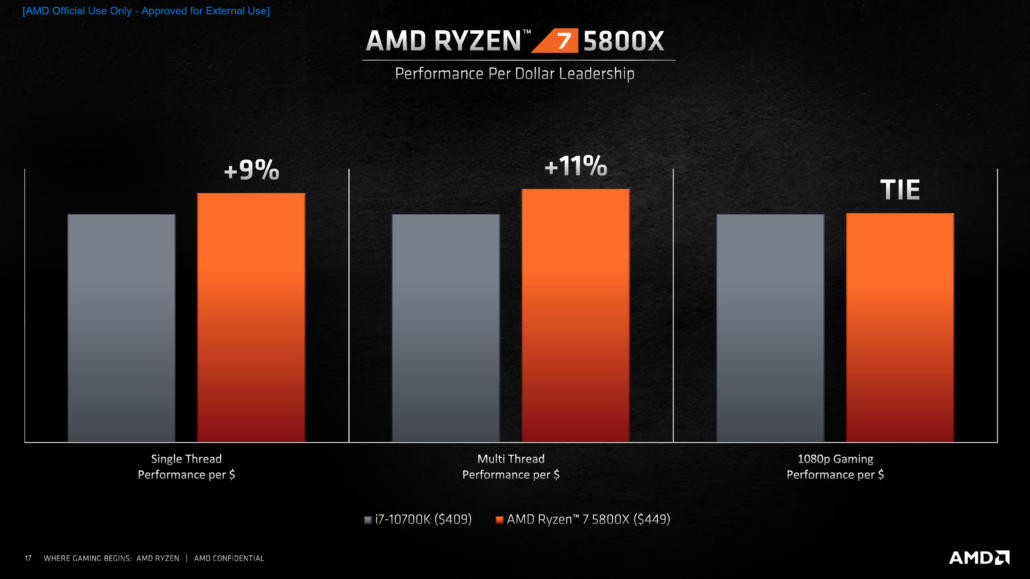
AMD Ryzen 5000 Series “Vermeer” CPU Lineup
| CPU Name | Cores/Threads | Base Clock | Boost Clock | Cache (L2+L3) | PCIe Lanes (Gen 4 CPU+PCH) | TDP | Price |
|---|---|---|---|---|---|---|---|
| AMD Ryzen 9 5950X | 16/32 | 3.4 GHz | 4.9 GHz | 72 MB | TBA | 105W | $799 US |
| AMD Ryzen 9 5900X | 12/24 | 3.7 GHz | 4.8 GHz | 70 MB | TBA | 105W | $549 US |
| AMD Ryzen 7 5800X | 8/16 | 3.8 GHz | 4.7 GHz | 36 MB | TBA | 105W | $449 US |
| AMD Ryzen 5 5600X | 6/12 | 3.7 GHz | 4.6 GHz | 35 MB | TBA | 65W | $299 US |
| AMD Ryzen 5 5600 | 6/12 | TBA | TBA | 32 MB | TBA | 65W | $219 US? |
The AMD Ryzen 5000 Desktop CPUs, codenamed Vermeer, will be launching on the 5th of November. The launch lineup will include the 16 core Ryzen 9 5950X, the 12 core Ryzen 9 5900X, the 8 core Ryzen 7 5800X, and the 6 core Ryzen 5 5600X. You can learn more about these SKUs here. All 500 series motherboards (X570/B550) will be receiving BIOS updates to support the next-gen lineup so if you’re planning to get a Ryzen 5000 CPU at launch, you better head over to this link and grab one that’s supported for your motherboard (do note that 400-series support comes later around January 2021).

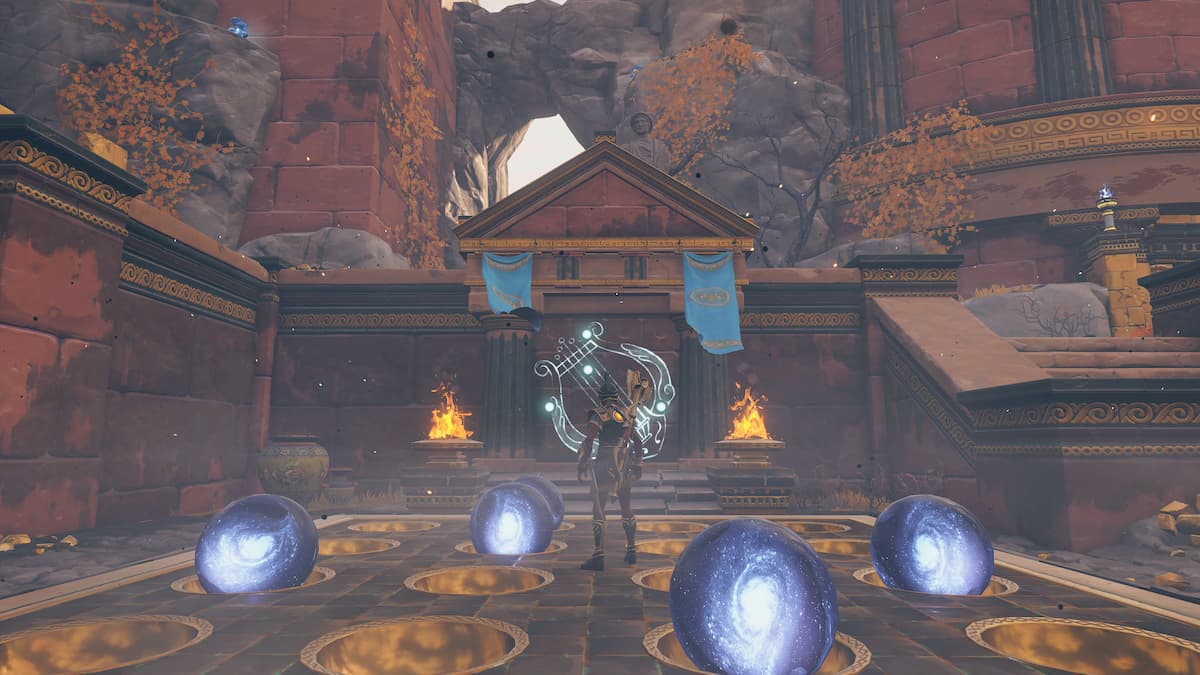





More Stories
AMD Radeon RX 6800 XT “Big Navi” GPU Alleged 3DMark Benchmarks Leaked – Faster Than GeForce RTX 3080 at 4K, Slower In Port Royal Ray Tracing
AMD Ryzen 7 5800H 8 Core & 16 Thread Cezanne ‘Zen 3’ High-Performance CPU Shows Up, Early ES Chip With 3.2 GHz Clocks
BitFenix Announces Two New Cases, The Nova Mesh SE and the Nova Mesh SE TG